#kiddylanes
Explore tagged Tumblr posts
Photo

Be in style !! Style articulate your personality. . . Girsl sweatshirt and pants for any day wear. #kiddylanes #style #personality #wednesday #kidswear https://www.instagram.com/p/B9lvNo1ATVT/?igshid=rr73tpoxei1h
2 notes
·
View notes
Text
Reading is as inevitable as breathing
"Reading maketh a full man,” says the greatest essayist of all times, Francis Bacon. Reading is a powerful tool to gain knowledge. Many writers and activists in history have got novel ideas and inspirations only by reading books. No one would dare to deny the role of reading in shaping the minds of the individuals. But have you ever noticed that the exposure towards books and comics during your childhood was much higher than the present one? It is always the technology that will be blamed for our very own deeds. But is it really the fault of technology for the gradual decrease in reading habits?
I stumbled upon a BBC article recently on technology and books, which was titled “The book is dead, long live the book.” The article argues that although digital technology has taken over print publishing, it doesn’t mean that the books are dead. E-Books are still books and they are much cheaper and easily accessible. However, there is still a considerable group of readers who prefer print to the digital medium. So, with that, it is not relevant to finger point digital medium for the decreased rate of reading.
While technology tries to replace the traditional print mode, it may also likely cause changes in the reading style. But that doesn’t prove that reading habit is being affected by E -mode. So what is that refrains the children from reading? Well, don’t be surprised if I say it is technology again! It is so true that science and technology is a double-sided weapon. One has to be careful with the advancements. Researchers say that children’s reading is reducing due to their obsession with games and apps. It is very evident that most of the children today play video games on a daily basis which destroys the ideal habits like reading.
Now as parents, you bear the huge responsibility of rebuilding the habit of reading in today’s kids. The only good thing about the survey conducted by Nielsen Book data is that reading is still regarded as an ideal thing to do by the children. Which means, there are ample chances for parents to rekindle their interest in books and comics. But taking away all the digital gadgets from them, loading their rooms with books or prohibiting them to use social media platforms will not be of any use. Things like this would even lead to frustration and anxiety in children. So how do you help children improve their reading habits?
Start a routine- The first step towards this mission is to create a routine of reading. Ask the children to frame a schedule which also includes reading books.
Kindle the interest- Children at the beginning will be very distracted and disinterested in reading. By providing the books they love and the books that have colorful pictures you can overcome this challenge.
Create a reading space- Make some efforts to rearrange your living space. Fill the child’s room with books and comics for that creates a kind of attraction. The posters of famous characters, quotes and hangings also come in handy.
Bedtime stories- Be a doer instead of a preacher. A bedtime story a day would keep the phone away! Try talking about the books your child is reading, often give examples from stories and let your kid discuss his ideas on the book.
Join Book Club- Book clubs are a great way to enhance the reading skills of the children. Make sure that the school in which your child is studying has a book club or reading club.
Review books- Instead of watching irrelevant videos on Youtube, expose your child to watch the book reviews done by children. This would motivate them to start their own book review channel.
Let us show today’s kids the joy of reliving the lives of Alice, Robin Hood, Famous five, Matilda and many more! Happy reading!
Inspired by BBC, NewYork times and Oxford learning
Pictures from Pexels
#kiddylanes#kiddy lanes#kid#kids#kidsonline#kidsonlinestore#kidsapparel#apparel#books#book#reading#readingbooks
1 note
·
View note
Photo

Life isn't perfect but your outfit can be !! . . Girls Party Wear Casuals | Pleated Shorts With Front Pocket T-Shirt . . . #uskids #uskid #kiddylanes #kidswear #partykids #friday #tgif https://www.instagram.com/p/B9qWmVjA-zT/?igshid=c3bb76r2v8pb
0 notes
Photo

How about some salsa tonight? . . Salsa dance costume . . #salsa #kiddylanes #dance #uskids #uskid #thursday #costume #dancecostumes https://www.instagram.com/p/B9o1cPagvrC/?igshid=1vtx5dmpmy7fd
0 notes
Photo

How about some salsa dance today? . . Salsa dance costume to grab one for your sala tonight. . . #kiddylanes #thursday #salsadancing #dance #uskids #uskid #dancecostumes https://www.instagram.com/p/B9oxkFTlJVwukG-TryJdXTnV9lbUH-G_uNuvT80/?igshid=2gvfchnh3k32
0 notes
Photo

#happy #holi to all. #life is filled with #color enjoy the Beauty of each and every color and have a blast this holi. . Warm wishes from #kiddylanes #family to you and your family. . . #holi #holi2020 #happyholi #happyholi2020 https://www.instagram.com/p/B9i32yBg9Pb/?igshid=i0ws0888k4o9
0 notes
Photo

Happy women's day !! Kiddylane's wishes all the #women a very Happy women's day. Women are the Warriors with Ordinary yet an extra ordinary talent , Magnetic masterpiece , an Alluring and Nobel person . . #happywomensday #internationalwomensday #nationalwomensday #womensday2020 #woman #kiddylanes #sunday #8thmarch https://www.instagram.com/p/B9dWJ8hg39X/?igshid=5q7omar453fb
#women#happywomensday#internationalwomensday#nationalwomensday#womensday2020#woman#kiddylanes#sunday#8thmarch
0 notes
Text
When Women Choose A Back Seat in Career Path | Why?

It turns out, more women are focusing on the Life Track, too. Someone shared survey results that about 43% of women surveyed say they are less ambitious now than they were 10 years ago; only 25 percent of women are working towards their next promotion. Now, these are women age 35-60, and it would be interesting to see what the 25-35 group would say.
65 percent of college-educated women nationwide prefer to have more free time in their lives than make more money at their jobs. In fact, 40 percent would even take a pay cut for more flexibility.
“Since the 1970’s women have poured into the American workplace - and now we’re at a crossroads,” says More magazine Editor in Chief, Lesley Jane Seymour. “Stymied by our efforts for advancement and confused about how to manage our personal life and a promising career, today’s career-minded women are sacrificing ambition for balance.”
Is it really a sacrifice? Or more like a compromise? I feel that as the dynamics of the workplace change, that as people strive to grow meaningful relationships with their families, this is an effort for employees to say: Let me be present in my family's life, and then I can be present in my job without distraction. It's not that easy, though
With today’s weak economy and high unemployment rate, 33 percent of women believe it’s career suicide to ask for more flexibility at work. Given the demand structure of today’s workplace, 92 percent of women value workplace flexibility, which is up markedly from 2 years ago (73%).
Almost a decade ago, the writer Linda Hirshman exhorted ambitious women to marry men with less money or social capital than they had. In articles and her book, Get to Work, she told women that they should avoid ever taking on more than half of the housework or child care. How to do it? Either marry a man who is extremely committed to equality, or do what she says is the easier route and “marry down.” Hirshman explained in the American Prospect that such a choice is not “brutally strategic,” it’s just smart. “If you are devoted to your career goals and would like a man who will support that, you're just doing what men throughout the ages have done: placing a safe bet.
This was a highly controversial piece of advice at the time, but Hirshman might have been right. A new study of Harvard Business School graduates from HBS’s Robin Ely and Colleen Ammerman and Hunter College sociologist Pamela Stone shows that high-achieving women are not meeting the career goals they set for themselves in their 20s. It’s not because they’re “opting out” of the workforce when they have kids, but because they’re allowing their partners’ careers to take precedence over their own.
The study’s authors interviewed 25,000 men and women who graduated from Harvard Business School over the past several decades. The male graduates were much more likely to be in senior management positions and have more responsibility and more direct reports than their female peers. But why? It’s not because women are leaving the workforce en masse. The authors found, definitively, that the “opt-out” explanation is a myth. Among Gen X and baby boomers they surveyed, only 11 percent of women left the workforce to be full-time moms. That figure is lower for women of color—only 7 percent stopped working. The vast majority (74 percent) of Gen Xers, women who are currently 32-48 and in the prime of their child-rearing years, work full time, an average of 52 hours a week.
But while these women are still working, they are also making more unexpected sacrifices than their male classmates are. When they graduated, more than half of male HBS grads said they expected their careers would take precedence over their partners’. Only 7 percent of Gen X women and 3 percent of baby boomer women said they expected their careers to take precedence. Here’s what they did expect: The majority of women said they assumed they would have egalitarian marriages in which both spouses’ careers were taken equally seriously.
A lot of those women were wrong. About 40 percent of Gen X and boomer women said their spouses’ careers took priority over theirs, while only about 20 percent of them had planned on their careers taking a back seat. Compare that with the men: More than 70 percent of Gen X and boomer men say their careers are more important than their wives’. When you look at child care responsibilities, the numbers are starker. A full 86 percent of Gen X and boomer men said their wives take primary responsibility for child care, and the women agree: 65 percent of Gen X women and 72 percent of boomer women—all HBS grads, most of whom work—say they’re the ones who do most of the child care in their relationships
Of course, marital arrangements aren’t the only force holding women back. Part of the reason these women aren’t advancing at the same rate as their male counterparts is that after they have kids, they get “mommy-tracked.” In many ways, they’re not considered management candidates anymore. “They may have been stigmatized for taking advantage of flex options or reduced schedules, passed over for high-profile assignments, or removed from projects they once led,” the authors note. Other studies support these findings, as they have shown that there is a real, substantial motherhood penalty that involves lower pay and fewer promotions for women with kids, because employers assume they will be less dedicated to their jobs (as do, we now know, their husbands).
Based on these numbers, Hirshman suddenly seems prescient. Take a look at the current crop of female CEOs: A lot of them have husbands who don’t work. Xerox CEO Ursula Burns took a page out of Hirshman’s book and joked at a 2013 conference, “The secret [to success] is to marry someone 20 years older.” Her husband retired as she was hitting her career stride, allowing him to take primary responsibility for their kids. If becoming a CEO and having a family is what you desire, you might want to take that advice.
But apart from talks of individual, the data and trend gives a indication towards what woman is looking for as a change in work culture, and family task sharing, being an equal contributor to the mankind. Not sure how much will things improve in this profit and cost oriented world, but its an area which needs sincere attention to improve. Else this may lead lack of interest in parenting...So not only corporate, governments are also required a sustainable improvement in this regard.
Courtesy: Jessica Grose / slate.com & Emily Jasper/Forbes.com
https://kiddylanes.com/ World’s preferred Online Shopping Store for Kids & Baby Products. Buy baby clothes, footwear and bedding & activity stuffs with our world-wide Free-Shipping.
For more of such news feeds, visit https://kiddylanes.com/blogs/news
#kiddylanes#online store for kids#kids#kid apparel#mom#workingmom#life#career#back seat#working women
0 notes
Text
An Extra Laughter with Kids...

No one would ever imagine that laughter has the power to heal an individual, both physically and mentally. When children laugh, it can be uplifting for anyone listening to it, and it benefits the child in untold ways. And, the sound of children laughing can be very compelling too!!
The sound of children laughing genuinely is one of life’s most beautiful sounds. Whether it’s straight from the belly, a loud chuckle or a full-throated laugh, anyone listening to it can smile at the sound. It also makes one feel liberated and alive and fills one up with joy. Truly said, laughter is indeed the best medicine. Here are some widespread ways in which children can reap the benefits of their own laughter.
A sense of humor can brighten family life. You can blow raspberries on a baby's belly, put on a silly hat and chase a 3-year-old, or pretend to fall into a pile of leaves to amuse a first-grader. As kids grow into preteens and teens, you can share puns and jokes as their sense of what's funny grows more sophisticated.
Laughing together is a way to connect, and a good sense of humor also can make kids smarter, healthier, and better able to cope with challenges.
We tend to think of humor as part of our genetic makeup, like blue eyes or big feet. But a sense of humor actually is a learned quality that can be developed in kids, not something they're born with.

What's So Funny Anyway?
Humor is what makes something funny; a sense of humor is the ability to recognize it. Someone with a well-developed sense of humor has the ability to recognize what's funny in others and can amuse them as well.
A good sense of humor is a tool that kids can rely on throughout life to help them:
see things from many perspectives other than the most obvious
be spontaneous
grasp unconventional ideas or ways of thinking
see beyond the surface of things
enjoy and participate in the playful aspects of life
not take themselves too seriously
Kids with a well-developed sense of humor are happier and more optimistic, have higher self-esteem, and can handle differences (their own and others') well. Kids who can appreciate and share humor are better liked by their peers and more able to handle the adversities of childhood — from moving to a new town, to teasing, to torment by playground bullies.
And a good sense of humor doesn't just help kids emotionally or socially. Research has shown that people who laugh more are healthier — they're less likely to be depressed and may even have an increased resistance to illness or physical problems. They experience less stress; have lower heart rates, pulses, and blood pressure; and have better digestion. Laughter may even help humans better endure pain, and studies have shown that it improves our immune function.
But most of all, a sense of humor is what makes life fun. Few pleasures rival yukking it up with your kids.
Different Ages — Different Humor
Kids can start developing a sense of humor at a very young age. But what's funny to a toddler won't be funny to a teen. To help your kids at each stage of development, it's important to know what's likely to amuse them.
Babies
Babies don't really understand humor, but they do know when you're smiling and happy. When you make funny noises or faces and then laugh or smile, your baby is likely to sense your joy and imitate you. He or she is also highly responsive to physical stimuli, like tickling or raspberries.
Sometime between 9 and 15 months, babies know enough about the world to understand that when mom puts a diaper on her head or quacks like a duck, she's doing something unexpected — and that it's funny.
Toddlers Toddlers appreciate physical humor, especially the kind with an element of surprise (like peek-a-boo or an unexpected tickle). As kids develop language skills, they'll find rhymes and nonsense words funny — and this will continue well into the preschool years.
And it's around this time that many kids start trying to make their parents laugh. Your child might deliberately point to the wrong facial feature when asked "Where's your nose?" or put on your shoes and clomp around the house.
Preschoolers
A preschooler is more like find humor in a picture with something out of whack (a car with square wheels, a pig wearing sunglasses) than a joke or pun. Incongruity between pictures and sounds (a horse that says moo) is also funny for this age group. And as they become more aware of bodily functions and of what gets a parent's goat, preschoolers often start delighting in bathroom humor.
School-age Kids
As kids move into kindergarten and beyond, basic wordplay, exaggeration, and slapstick will increasingly funny. They may discover the pleasure of telling simple jokes (it's fun to be the one who knows the punchline!) and will repeat the same jokes over and over.
Older grade-schoolers have a better grasp of what words mean and are able to play with them — they like puns, riddles, and other forms of wordplay. They'll also start making fun of any deviation from what they perceive as "normal" forms of behavior or dress, and gross-out jokes related to bodily functions are a hit too.
But kids this age are also developing more subtle understandings of humor, including the ability to use wit or sarcasm and to handle adverse situations using humor.
Humor Basics
It's never too early to start developing a child's sense of humor. Babies' smiles and laughs are so delightful that we often do this intuitively — smiling, blowing raspberries, or tickling them many times a day just to hear a chuckle.
It's important to keep up this encouragement as kids grow. When you're playful and humorous with your child, delighting in silliness and laughter, you help him or her develop a playful and humorous attitude about life.
One of the best ways to do this from the toddler years on is to spend time every day being receptive to the many opportunities your child gives you to smile or laugh. Be spontaneous, playful, and aware of what your child finds funny at different ages. Also be game enough to laugh so the jokes don't fall flat.
What else can you do to encourage your child's sense of humor?
Be a humor model. One of the best things you can do to develop your child's sense of humor is to use your own. Make jokes. Tell funny stories. Laugh out loud. Deal lightly with small catastrophes like spilt milk.
Take kids' humor seriously. Encourage your child's attempts at humor, whether it's reading (potentially unfunny) jokes from a book or drawing "funny" pictures of the family dog. Praise your child for trying to be funny and be open to surprise — the first time your child makes you laugh is one of life's great pleasures.
Teach kids that adults are funny — and that they can be too. Make humor a part of your day-to-day interactions with your kids and encourage them to share funny observations or reactions, even when you're around other adults.
Create a humor-rich environment. Surround your kids with funny books — for toddlers and preschoolers these include picture books or nonsense rhymes; older kids will love joke books and comics. Also check out funny TV shows, movies, and websites for all age groups — help your child make good choices and then enjoy them too.
Where to Draw the Line
You don't want to rain on their parade, but kids need boundaries when it comes to humor, just like they do in other areas. You don't want to encourage mean-spirited or off-color jokes, so be a good role model and avoid using humor in this way. If someone tells a hurtful or inappropriate joke, don't laugh. Take the time to explain to your child why that joke isn't funny.
You also might want to gently discourage bathroom humor or at least not participate too heartily. It won't hurt anyone's feelings but kids may have trouble determining when it's OK to make such a joke (at home, with family) and when it's not (in the classroom, at church).
The Family That Laughs Together...
Above all, humor is social. That's why you laugh harder at a funny movie when you see it in the theater with other people laughing around you than all alone on your couch.
A key aspect to developing your child's sense of humor is to take time to have fun as a family. Share jokes, play games, and watch funny movies together.
You might even adopt your own offbeat family traditions, whether it's hanging spoons off your noses or wearing matching pajamas. It will be funny now — and maybe even funnier in years to come, when you and your kids remember those silly family times.
Courtesy: parentinghealthybabies.com, kidshealth.org
For more of such articles on parenting, kids, and family, visit https://kiddylanes.com/blogs/news
#kiddy lanes#kiddylanes#kids#kid online store#online store for kids#kid apparel#kids clothing#stories for kids#humour#enterntainment
0 notes
Text
How to think like a Child?

Picasso once said: "Every child is an artist. The problem is how to remain an artist after he grows up." He certainly had a point, and now researchers at North Dakota State University think they may have found an answer. Darya Zabelina and Michael Robinson, who carried out a US study into adult creativity have discovered that the more an adult act and thinks like a child, the more imaginative he or she becomes. "Thinking like a child is entirely possible for adults," says Robinson. "And we found that doing so is beneficial for certain types of creative activities."
While we're not suggesting you regress into making loud personal comments about people on the bus, or screaming when you want something, there are many things you can do to tap into your inner child. You could try not taking yourself too seriously, for one. Or be spontaneous, inquisitive and generally more chaotic. Or simply take life more slowly – enjoy a nice long bath instead of darting in and out of the shower. "It's all about finding anything we can do to relax ourselves," says chartered psychologist Mark Millard. "Most of the time most of us are too tight. We all need loosening up."

So if your creative impulses haven't dried up or been beaten out of you entirely, here's a handy guide to bringing out the best in yourself by behaving like a small child.
Lose your cool
Ever watched a child dance or sing? As the old adage by American author William Purkey goes: "You've gotta dance like there's nobody watching ... sing like there's nobody listening." This is exactly how children do it. It may not be in time to the music, and it may not look cool, but it's as spontaneous and as free as it gets. "Children have an enormous capacity to be uninhibited," says chartered counselling psychologist Martin Lloyd-Elliott. "Adults always thrive when they have at least a few areas of their life in which they allow themselves to let go completely."
This is about more than just not taking ourselves too seriously, says Michael Dunn, senior lecturer in business psychology at the University of Derby. He cites new research done into the way the brains of jazz musicians work which suggests that lowering our barriers can be highly productive. "Scientists discovered that when jazz musicians improvise, their brains turn off areas linked to self-censoring and inhibition, and turn on those that let self-expression flow," he says. "And in doing this they are coming to the task more like a child would."
Have a bad idea
How many of us have sat around in meetings with a half-decent idea in our head, yet not spoken up because we're worried people will laugh? We've all learned through bitter experience that if you say the wrong thing or express a dodgy idea, then chances are you'll be ridiculed.
"Children are much less inhibited about saying the things that might not be right," says Dunn. "To be creative, what we are looking for is not one idea but dozens of ideas – some good, some average and some rubbish. We need to go through the wrong stuff to get to the right stuff. So no matter how wild and wacky an idea is, we need to learn to suspend judgement and get it to the table. Kids aren't bothered about doing that, they have no fear of saying what they think." In other words stop being so paranoid and speak up. As Einstein once said: "If at first the idea is not absurd, then there is no hope for it."
Learn to dawdle
If you've ever tried to get a child to school in a hurry you'll know: short of dragging them down the street, it's impossible. They don't seem to have a speed setting other than extremely slow. Do as they do and drag your feet whenever possible, stop to gaze into any shop window you fancy and miss the crossing when the green man comes up. "Going for a walk, letting our minds wander and having a really good rummage around in our mind is a very good problem-solving technique," says chartered psychologist Mark Millard. "Don't go out with blinkers on. Walk around and see what captures your attention. It's a great way to help us bust out of our usual mindset." Which is common sense: it's about slowing down and giving ourselves more time to see things.
Be bored
Many of us can remember issuing that pitiful lament: "Mum! I'm bored." Well, these days we just don't say it enough. When we're not working, we're doing our chores, watching TV, or Facebooking our friends, we just don't allow ourselves any proper down time any more. The psychoanalyst Dr James Hollis says all of us should "create space to invoke possibility". But it seems we have forgotten how.
"We need to make time and space to daydream, to meditate, to let our minds wander – to allow ourselves to be bored," says Lloyd-Elliott. "Most people seem to be allergic to stillness and silence and dreaded boredom. They have to fiddle with their phones, games consoles and laptops rather than just be. Too much human doing and not enough human being. Children embrace dead space and time and fill it with imagination. The greatest creative ideas often emerge from the gloom of boredom."
Break the rules
We have all had it drummed into us that there is one correct answer to everything and it's wrong to make a mistake. Children have no idea about these rules; they are chaotic and willing to search for many different answers. "We all got educated into a fixed way of looking at the world," says Millard, "which is really very good if you are a banker an accountant or someone who drives a car. But it's definitely very unhelpful if you are faced with a problem where you need to be more imaginative." Dunn also believes we accept convention too readily. "My students, for example, sit in the same seat for class week after week, for no reason other than that's what they have always done," he says.
"Try folding your arms with the other arm on top – it feels wrong. Without making the effort to mentally suspend any rules or conventions, creative output will be limited. "Children don't know theories," he concludes. "Their brains are not conditioned. They haven't learned the shoulds and have-tos of the adult world. They don't know what's possible and what's not. How many adults would crawl around the floor trying to pick up a sunbeam?"
Get yourself a babysitter
Not literally of course, but putting someone else in charge, even if just for a little while, can be hugely beneficial. There's a phase in psychology known as "executive control", which is all about how we are driven by deadlines, chores, work or whatever else, which means our attention is narrowed and so therefore able to be less creative. "We believe," says Millard, "that if we don't attend to these pressing issues something dreadful is going to happen." When we are stressed we limit our focus and home in on the things that are troubling us. "We tend to ruminate and turn things over and over and over and get fixated, which is not very helpful if you are trying to come up with new ideas," Millard adds. So, try handing over the reins, let someone else take control and sit back and think of higher things.
Sit in the back seat of the car
Another way of relinquishing control. Aside from giving up all responsibility for map reading, CD-changing and arguing about directions, occupying the back seat gives you a different perspective on life – it's simply a way of looking at things from a new angle. "It's just about changing age-old habits and breaking out of routine," says Millard. "Occupying a different physical space does wonders to change your outlook." Strapped down like a child, you are pretty much powerless to do anything (even to get out if there are child locks), so you might as well relax and enjoy. There's no need to go as far as getting yourself a booster seat.
Get an imaginary friend
Bear with us here, it's not as crazy as it sounds. We're not suggesting you launch into elaborate role-play or incessant chatter to an invisible being, but visualisation exercises have long been a valuable tool for the psychologist.
"One technique that I often use is to get people to imagine that they are an adult holding the hand of a child who is frightened of the situation they are in. It enables them to see the situation more clearly," explains Dr Rachel Andrew, a chartered clinical psychologist.
I have a friend who, when faced with a tricky situation, always asks himself the question: what would David Bowie do? It isn't quite an imaginary friend, but it seems to work for him.
"What someone like this could provide for an adult is a sense of comfort, security, friendship and belonging," says Millard. "It could just be someone you can sound ideas off, or someone who pats you on the back and keeps you going, or who sees things in a slightly different way. Anything that encourages positivity or changes your perspective can be very helpful."
Just try not to chat to them too much while out you're in public 😊
Courtesy: Lena Corner, independent.co.uk
For more of such blogs/feeds, visit https://kiddylanes.com/blogs/news
Happy Shopping!
#kid#kiddy lanes#kiddylanes#kid online store#online store for kids#kid apparel#kids#fitness#workingmom#USKIDS#childbirth#child#children
0 notes
Text
Why it’s good to be a boring parent

Really, it is okay to be a boring parent! Seems counter-intuitive because we’ve been told for so long how good it is to be involved in our kids’ lives and how we must spend quality, fun time with them. Yes, that’s all good and I completely agree with all that but there is a place for boring.
Your four year old asks for the 100th time, “Can I have a biscuit?” and you say for the 100th time, “Yes, when you’ve had your dinner.” Your eight year old comes to you and asks again if they can go and play at the neighbour’s and you say again, “Sorry, sweetheart, we’re going to Nana and Pop’s today. Can you remember to ask me again tomorrow?” Your 11 year old comes to you and says yet again, “Can I go to the mall with my mates? Everyone else is allowed!” and you say yet again, “When you’re 14, we’ll talk again. In the meantime, I’m happy to come with you and be somewhere else in the mall for an hour while you’re with your mates. Got your phone charged?”
What I mean is it’s good to be consistent or ‘boringly repetitive’. Sometimes our kids are genuinely trying on their strength, but sometimes they’re just checking to see if the rules are the same as they were yesterday. It can be really reassuring for them to be met with the same consistent, boringly repetitive rules and reasons. Either way, it’s great if we can respond with warmth and firmness, good reasons if they need to be restated, and brevity.
What I mean is it’s good to be consistent or ‘boringly repetitive’.
Never underestimate the effectiveness of the brief reminder. No need to get tied up in knots because, “They should know this already because we’ve talked about it enough!” or to take it personally because, “Clearly they’re not listening.” Just restate the boundary and move on with the expectation that they will take it on board. We know that our kids tend to rise to our good expectations of them and usually that’s all that needs to be said. If that doesn’t settle it, you may need to redirect the four year old with, “What are you going to do until dinner? Play outside or with your dinosaurs?” The 11 year old might need to be reminded that, “The choice is go to the mall or not – it’s up to you. Let me know when you’ve thought about it,” and give them some space to process the decision.

Another stylish way of dealing with this is to get them to do the thinking. By that I mean simply asking, “What’s our rule about this?” or, “You’ve got a good memory, what did I say last time you asked me?” Please note sarcasm has no place in these conversations, which is a great shame because I’m quite good at it and my kids would agree! There are a number of good things about getting them to do the thinking. One is that they’re joining the dots for themselves, using their energy not ours and internalising our family values. They’re also exercising the frontal cortex – the executive functioning part of their brains which is crucial the older and more independent they get. We know in terms of brain plasticity that whatever we use gets stronger and more efficient.
So there you go. If your kids complain you’re boring, just smile knowingly and say, “Yeah, I know. Cool, eh?”
Courtesy: Jenny Jackson, theparentingplace.com
For more of such news/feeds, visit https://kiddylanes.com/blogs/news
#kid#kids#kiddy lanes#kid online store#online store for kids#kid apparel#kiddylanes#parent#parenting#parentslife#boring parent
0 notes
Text
Discipline that works
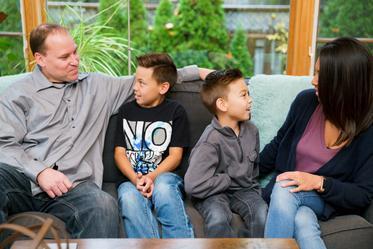
All children "misbehave" sometimes, and all parents wonder how to stop the misbehavior. But that's only half of our mission as parents. The other half is raising a child who internalizes our guidance to become "self-disciplined." The most effective "discipline" for your child is always positive, loving, gentle guidance. Here's why.Why Peaceful Parenting?
What is a Peaceful Parent? A parent who commits to regulating her own emotions, instead of taking them out on her child. A parent who commits to not using violence or shame to control her child, and instead uses connection and coaching to motivate him.
Why Peaceful Parenting? Because it works, from toddlers to teens. Peaceful parenting raises a child who WANTS to behave.
Strict Parenting raises angry kids who lose interest in pleasing their parents. Permissive parenting raises unhappy kids who test their parents. In both cases, the child resists the parent's guidance and doesn't internalize self discipline.
Peaceful parenting is using love and connection to keep our kids on the right path. Research shows that children are more open to our guidance when we empathize, and resist any temptation to be punitive. That's what helps kids learn consideration and responsibility, and makes for happier kids and parents.
"Children misbehave when they feel discouraged or powerless. When you use discipline methods that overpower them or make them feel bad about themselves, you lower their self-esteem. It doesn't make sense to punish a child who is already feeling badly about herself and heap more discouragement on top of her."
How to Use Peaceful Parenting
"One generation full of deeply loving parents would change the brain of the next generation, and with that, the world." —Charles Raison
Peaceful Parenting has three parts:
The parent commits to regulating his or her own emotions.
The parent prioritizes maintaining and strengthening the parent-child connection, which is the only reason children cooperate.
The parent loves the child unconditionally, rather than using "love withdrawal" or other punishment techniques to control and manipulate the child with punishment or rewards. Instead, the the parent sees him or herself as a coach, offering the child loving guidance so the child learns to manage emotion, and therefore behavior.
Below are the ten tips for practicing peaceful parenting instead of punishment at your house. If you're wondering whether that's a good idea, the short answer is that punishment undermines your relationship with your child, makes kids feel worse about themselves (which makes them act worse) and sabotages your child's development of self-discipline. Isn't your goal to help your child feel good and act better? Click here for more information on WHY peaceful parenting raises great kids.

1. Peaceful parenting starts with regulating your own emotions,
...so that you can be the patient, emotionally generous parent you aspire to be -- and that every child deserves.
2. Evaluate all teaching based on whether it strengthens or weakens your relationship with your child.
The most effective discipline strategy is having a close bond with your child. Kids who feel connected to their parents naturally want to please them. Think Loving Guidance, not punishment. Punishment is destructive to your relationship with your child and ultimately creates more misbehavior. Loving guidance is setting limits and reinforcing expectations as necessary, but in an empathic way that helps the child focus on improving her behavior rather than on being angry at you.
3. Start all correction by reaffirming the connection.
Remember that children misbehave when they feel bad about themselves and disconnected from us.
Stoop down to her level and look her in the eye: "You want your brother to move, so you pushed him. No pushing; pushing hurts! Tell your brother, 'Move please!'"
Pick her up: "You wish you could play longer but it's time for bed."
Make loving eye contact: "You are so upset right now."
Put your hand on her shoulder: "You're scared to tell me about the cookie."
4. Don't hesitate to set limits as necessary, but set them with empathy.
Of course you need to enforce your rules. But you can also acknowledge her perspective. When kids feel understood, they're more able to accept our limits.
"You’re very very mad and hurt, but we don’t bite. Let’s use your words to tell your brother how you feel." "You wish you could play longer, but it's bedtime. I know that makes you sad." "You don't want Mommy to say No, but the answer is No. We don't say 'Shut Up' to each other, but it's ok to be sad and mad." "You are scared, but we always tell the truth to each other."
5. In any situation posing physical danger, intervene immediately to set limits, but simultaneously connect by empathizing.
"The rule is no hitting. You can tell your sister what you want and how you feel without attacking her."
6. Defiance is always a relationship problem.
If your child does not accept your direction ("I don't care what you say, you can't make me!"), it's always an indication that the relationship is not strong enough to support the teaching. This happens to all of us from time to time. At that point, stop and think about how to strengthen the relationship, not how to make the child "mind." Turning the situation into a power struggle will just deepen the rift between you.
7. Avoid Timeouts. They create more misbehavior.
Timeouts, while infinitely better than hitting your child, are just another version of punishment by banishment and humiliation. They leave kids alone to manage their tangled-up emotions, so they undermine emotional intelligence. They erode, rather than strengthening, your relationship with your child. They set up a power struggle. And they only work while you're bigger. They're a more humane form of bullying than physical discipline.
8. Consequences teach the wrong lesson if you're involved in creating them.
On the face of it, Consequences make sense: The child does (or doesn't do) something, and learns from the consequences. Which, when it happens naturally, can be a terrific learning experience. But most of the time, parents engineer the consequences, so that any child can explain to you that consequences are actually punishment.
If the parent is not involved in the consequences (for instance, if they don't study and flunk their test, or they don't brush and get a cavity) -- and if you can handle the bad result -- kids can learn a lot from suffering the consequences of their actions. Of course, you don't want it to happen more than once, or their self image becomes that of a person who flunks test and gets cavities, and they have learned an unintended lesson. My own view is that it works better, if possible, for them to skip such lessons, but as a last ditch strategy, we all certainly learn from letting things go wrong.
Unfortunately, most kids whose parents use "consequences" as punishment don't think of them as the natural result of their own actions ("I forgot my lunch today so I was hungry"), but as the threats they hear through their parents' clenched teeth: "If I have to stop this car and come back there, there will be CONSEQUENCES!!" If parents are in charge of consequences, then the consequences aren't the natural result of the child's actions, but simply punishment.
To the degree that Consequences are seen as punishment by kids -- and they almost always are -- they are not as effective as positive discipline to encourage good behavior. Using them on your kids should be considered a last result and a signal that you need to come up with another strategy.
9. What you think and feel is more important than what you say in how your child responds.
Kids will do almost anything we request if we make the request with a loving heart. Find a way to say YES instead of NO even while you set your limit. "YES, it's time to clean up, and YES I will help you and YES we can leave your tower up and YES you can growl about it and YES if we hurry we can read an extra story and YES we can make this fun and YES I adore you and YES how did I get so lucky to be your parent? YES!" Your child will respond with the generosity of spirit that matches yours.
10. How you treat your child is how she will learn to treat herself.
If you're harsh with her, she'll be harsh with herself. If you're loving with her while firm about setting appropriate limits, she'll develop the ability to set firm but loving limits on her own behavior.
Harsh discipline and punishment, ironically, interfere with the child's ability to develop self discipline. The problem with internalizing harshness isn't just that it makes for unhappy kids and, eventually, unhappy adults, it's that it doesn't work. Kids who are given discipline that is not loving never learn to manage themselves constructively.
To the degree that we're harsh with ourselves because of the way we were parented, we respond to it by rebelling (how many times do we cheat on our diets?) or martyring ourselves (trying hard to be good girls and boys but building up resentment and lashing out at those we love, or not giving ourselves a break and ultimately breaking down.)
To the degree that we can accept our own loving guidance because we've learned from our parents to treat ourselves that way, we are able to set goals and use our self-discipline to attain them. Ultimately, loving guidance and positive parenting result in the child's developing the holy grail toward which all child-raising is aimed: the child's own self-discipline.
Courtesy: ahaparenting.com
For more of such feeds, visit https://kiddylanes.com/blogs/news
#kiddy lanes#kids#kiddylanes#kid online store#online store for kids#kid apparel#discipline#workingmom#mom#father#family#USKIDS
0 notes
Text
To Raise Happy Kids, Put Your Marriage First

Want better-adjusted, more successful children? The answer is not to cram their free hours with Kumon math, Mandarin lessons and violin classes. Nor is it to be a "helicopter parent", forever hovering.
Devoted parents do not produce happy children, says a new book that has become a bestseller in America and is about to be published in the UK. Adults who want the best for their children should spend less time trying to be the perfect parent and more time striving to be the perfect spouse, according to David Code, author of To Raise Happy Kids, Put Your Marriage First.
"Today's number one myth about parenting is that the more attention we give our kids, the better they'll turn out. But we parents have gone too far: our over-focus on our children is doing them more harm than good," said Code, a family therapist and writer for the Wall Street Journal. "Families centered on children create anxious, exhausted parents and demanding, entitled children. We parents today are too quick to sacrifice our lives and our marriages for our kids. Most of us have created child-centered families, where our children hold priority over our time, energy and attention.
"But as we break our backs for our kids, our marriage and self-fulfillment go out the window while our kids become more demanding and dissatisfied," he added. Code believes today's children are troubled because they receive too much attention. "That's why children seem to have many more problems nowadays than we did, or our parents did," he said. "By killing ourselves to provide a perfect, trauma-free childhood for our children, we're wasting our energy. The greatest gift you can give your children is to have a fulfilling marriage yourself."

But what if your child has problems and issues that demand a parent's full attention? Code believes that any worries parents have about their children are much more connected to their anxieties about their marriage than they realize. "We often believe we just don't have time for our spouse. But when two parents drift apart, often one parent will drift closer to the kids," he said. "We parents convince ourselves that putting our children first is child-friendly, but we make two main mistakes by doing so. First, it becomes harder to respect and enforce the boundaries that shape a child's character, so he simply badgers his parents until he gets his way. Future bosses and spouses may not be so patient with this behavior.
"Second, we put tremendous pressure on our children to fulfil our emotional needs, which may lead to the child acting out. This draws even more attention to the problem, as parents seek a diagnosis and physicians increasingly rely on medicating children. What had been a molehill becomes a mountain, creating a self-fulfilling prophecy that can cripple the child's development," he added.
Competitive, intensive parenting is a modern trend that counts Kirsty Wark, presenter of Newsnight, among its devotees. But while Wark happily admits to having been a "helicopter parent", the backlash has begun. Psychologist Dr Madeline Levine recently claimed that children of over-involved parents are three times more likely to suffer from depression and anxiety. Over-involved parenting was a thinly disguised attempt to correct what had not gone right in the parents' own lives, she said.
Kirsty Young, presenter of Desert Island Discs, agrees with Code. She called pushy parenting "the real modern disease". Young, a mother of two, said the "cult" of intensive parenting "sickens" her. "Parents today are preoccupied with children as an extension of their own success," she said.
But parents who admit they are putting their marriages first risk harsh public censure. Writer Ayelet Waldman said she has still not recovered from the furious reaction last year when she admitted she loved her husband more than her children. "I long for the day when an eminent sociologist publishes a definitive study of marriage where the parents openly admit they love each other desperately, ardently and even more than they love their children," said Waldman, author of Bad Mother, a Chronicle of Maternal Crimes.
"It would be wonderful if it could be established once and for all that the children of these marriages are more successful and have happier and healthier lives than children whose mothers focus their desires and passions on them."
Courtesy: Amelia Hill, www.theguardian.com
For more of such News feed, visit https://kiddylanes.com/blogs/news
#kiddy lanes#kiddylanes#kids#kid apparel#online store for kids#kid#marriage#happylife#happybaby#baby
0 notes
Text
Your Kids Dont Need A Perfect Mom, they need a happy one......
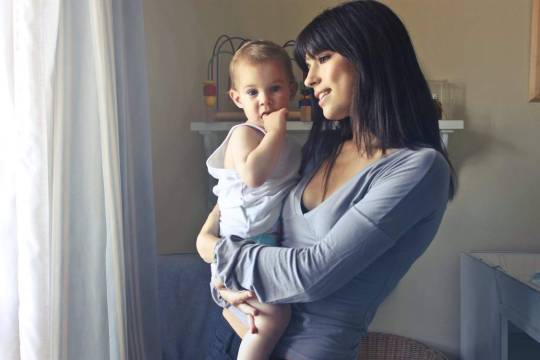
Prior to this weekend, I had a different plans to bring a blog or news on something creative for mommies or we young parents. But the spicy busy last two days reminded me what I am looking for as a happy mom, as a happy parent and as a happy individual. Its Break. Yes indeed ! Of course I love my hubby and my cute kids and we all love each other...but I think I am wishing for days where somebody else ensure that my kids and my daily chores are well ensured and managed. Aha!!....is it....I am full of blush and dimples once I start feeling that I am on such a short sabbatical.

About a year after my second child’s birth, I was running myself ragged. I ended up getting mono, compliments of my daughter, and was in bed for a week. I don’t get sick very often, but when I do I get really sick. It is as if my body is trying to tell me to slow down. Since I am sure that I am not alone, I wanted to share why every mom needs a break. Based on what happened to me this weekend, I realized I was long overdue.
Morning Run
I took Friday off to get some business work and errands done. Prior to getting down to business, I went on a morning run. I had so many things on my mind and I got lost in my thoughts as I was running. I was listening to an amazing podcast called Mother’s Quest and it was so relatable to what I was going through at the moment. You see, the morning started with my daughter pushing my buttons and I lost my patience with her. I was angry with her and I was angry with me as I was running and my adrenaline was already high prior to my feet even hitting the pavement. As I was listening to the podcast, I kept thinking about how I should have handled things differently. Unfortunately, my run and my reflection session were cut short.
I have no idea what happened, but one minute I was running away and the next minute I was face first on the sidewalk.
Thankfully, outside of some pretty bad scrapes, I am okay. I did ruin my favorite pair of running leggings, but at least I do not have any broken bones. It could have been a lot worse. I didn’t realize it at the time, but this fall was something that I needed. Like they say, everything happens for a reason!
After my run, I had every intention of coming home and being a badass. I had errands to run and a lot of business work to get done before the kids got off the bus. I cleaned myself up and met a friend for brunch. We had a good time catching up. However, as soon as I got up from the table, I knew that I was going to have to change my plans for the day. My hand was pretty sore and there was no way I was going to be able to do any house cleaning. Yeah, I got out of cleaning bathrooms!
Change of Plans
When I got into the car, I received a call from the school. In the interest of keeping my daughter’s life private, I am just going to say that it was not good news. I was devastated and I went home and I cried. I cried for so many reasons that I am not comfortable sharing at this point. No one wants their child to experience pain and I was upset just knowing what she has been going through. When she got home, I was strong and let her cry. She needed me and I needed her at that moment. Thanks to Only Love Today, a book that I have been reading, I knew that I needed to put everything aside and love her. I needed to be there to hug her and listen to her. The work and the to-do list could wait.
The next day, I woke up and knew it was going to be a long day. My knee was swollen and my leg was aching. I had a training class to go to in the morning, so I got ready and headed out. The class was great, but sitting for a long period of time was not easy on the knee. I got home and I was in pain. Once again, I put the list aside and sat on the couch and read and watched Nicholas Sparks movies. It was a relaxing evening and one that was long overdue. If you are a regular reader, you know that in addition to this blog I also have a full-time corporate career and run two different side business. I love every minute of it, but I don’t typically have a lot of time to just take a break.
I figured that I would use Sunday to catch up on everything that did not get done over the weekend. Life had a different plan.
While my daughter was doing better, I could tell that she needed me. She helped me with some of the household chores that had to get done and then we cuddled and spent the day together. In the morning, I was a bit annoyed because I knew that I had so much that I still had to get done before the workweek started again. As the day progressed, I realized how much we both needed this special bonding time. We do spend a lot of time together, but it is usually doing chores or running errands together. Lately, there has not been many days in which we just hang out together and do nothing.
Why Every Mom Needs A Break
Listen to Your Heart
As moms, we need to give ourselves the time to breathe and recharge. Despite all of us trying to be superheroes, our bodies and our minds have limits. There were so many signs that indicated that I needed to just stop and take a break. While it would be great to have that break be on a tropical island, it does not have to be anything extravagant.
My “break” looks different depending on what is going on in my life. There are days in which I know that I just need a kid free day to just to be Diane and not mommy. That is the nice thing about being a working mommy, you can take a day off while the kids are in school. Stay at home moms or work from home moms, I know that you do not have that luxury. If you need a kid free day, do not feel guilty about leaving your kids. They will be fine and you will find out you will be an even better mom if you are happy and are taking time to give yourself a break.
Mom Needs a Break
There are days, especially since my kids are in school, in which I need to recharge by spending time with one or both of my kids. I know there are times of the year in which I need to lean into work. During that time of the year, I am most productive when I get to recharge by spending time with my kids and being reminded of why I live the life that I do. There are other times in which I need to reconnect with my husband. Being a dual working, busy family makes it a challenge to find one on one time. If we cannot get a date night in, we will both take a day off of work and spend the day together. I love those days!
No matter what your break looks like, you need to take one. You will find that you are a better mom if you take the time to make you happy. My best advice is to schedule those breaks on calendar. Do not wait until you are forced to take one and have a crash on the sidewalk, like I did. While I am still recovering, it was a good reminder of where my priorities need to be. My health and my family always need to be the priority in my life.
What do you do to give yourself a break?
Courtesy & Inspired by: diariesofaworkingmommy.com
For more of such News Feed, visit https://kiddylanes.com/blogs/news
Dont forget to visit https://kiddylanes.com/
#kiddy#kiddy lanes#kiddylanes#kids#kid#kid online store#online store for kids#kid apparel#happymom#happy parenting#mom#mother#motherhood#motherslife#momslife
0 notes
Text
Why for Kids Playing Alone Is Also Important
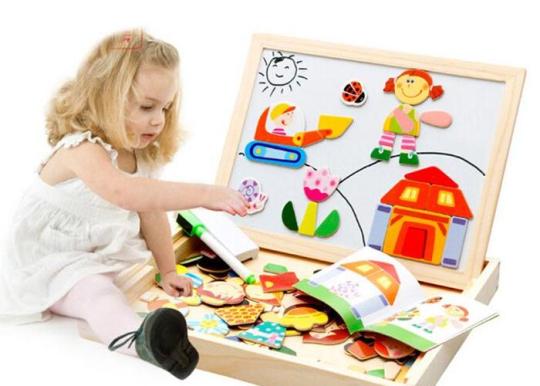
With our ages we all have realized how important is for children to play. At times we as a parent also join them when they are playing, and most of the time they play in the company of other sibling kids or with someone from the neighbor house or common school. But likewise playing in groups, playing alone is also required and it also brings a lot of value addition to the child. It doesn’t mean that we should encourage them to always play alone, rather we should make them learn to play in groups, as well as how to play when they are alone.
When children play alone, they learn many valuable lessons they'll carry with them throughout their lives. Solo playtime helps your kids become well-rounded individuals who are happy whether they're in small groups, large crowds or alone. Here are the explicit eight reasons why playing alone is important for children. Playing alone:

Teaches Children to Have Fun Independently
Kids who play by themselves learn to have fun on their own. They don't count on others for their happiness and entertainment. As your children grow, they understand that they won't always have someone by their side every waking moment. They'll be more confident and satisfied individuals.
Brings Out Their Imagination
You may already feel like your child is full of imagination. Just wait until you step back and let them play by themselves. The time alone will draw out superheroes, princesses and other play situations you wouldn't get to see if they weren't engaging in solo playtime. They'll be quick to think on their feet, and their creativity will shine.
Develops Their Social Independence
Playing alone develops a strong sense of independence in children. They don't have to be around another person or a group of people at all times. This social independence will help them feel comfortable in any situation.
Playing by themselves doesn't encourage your children to shy away from others with this new-found independence. It actually prepares them for whatever your day holds, a morning of solo play, an afternoon with your playgroup or an evening sleepover with a friend.
Encourages Calmness
Playing outside gets them riled up while playing with others gives them a lot of interaction.
Playing by themselves brings a sense of calmness to your kids. This time playing alone takes their mood to a different level as they peacefully play with their toys.
Shows Children How to Soothe Themselves
Kids want to know we're there for them when they need us, but learning how to play by themselves also teaches them to self-soothe. They count on you always, but they also learn to look inward to become their own problem solvers. Your children begin to understand their own emotions better and can start communicating those feelings to you too.
Lets Them Feel Comfortable When Alone
As much as you would like to, you can't interact with your children 24/7. You have chores to do and meals to put on the table.
When your kids know how to play by themselves, they don't rely on you as much to be their entertainment director. They also realize you're not ignoring them by not playing with them. They'll soon look forward to their time for individual play.
Gets Kids Ready for School
For preschoolers, you're probably the number-one playmate your children have ever known. As you back away and show them how to play by themselves, they understand that you're not always physically going to be there with them.
Playing alone gets children ready for school since you won't be able to sit in the back of the classroom with them every day.
They don't feel abandoned because one day you drop them off at school, making them feel like you've left them alone for the first time. Instead, they've developed those calm and self-soothing feelings and can feel comfortable taking on a new adventure without you there.
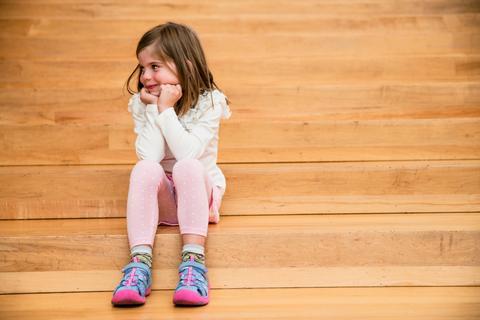
Gives You Some Downtime
Everyone deserves time to themselves. Even the grown-ups. Another perk of teaching your kids to play alone is that you earn a much-needed break. This isn't your primary goal, of course, but the time you spend alone is also a good example to your children. Your kids can see you enjoy doing the things you love alone and that you don't need someone else's attention 100% of the time to be happy.
Courtesy: Apryl Duncan, verywellfamily.com
For more of such news feeds, visit https://kiddylanes.com/
#kids#kid#kiddylanes#kiddy lanes#kid online store#online store for kids#online store#kids educational#self development#soothes my soul#kids learning#encourage
0 notes
Text
Working Mom's Success : Forget Balance | Make Your Own Recipe of Success !!

As an executive at a leading financial services and technology company with two young children, I’m often asked how I maintain a balanced personal and professional life. The answer is simple—I don’t. After many hours of self-reflection, conversations with friends and family, and debates with my husband, I’ve found a recipe for success with life-work integration rather than work-life balance. For me, it’s not about striving for a perfect balancing act but rather integrating across all aspects of life so you can bring your whole self to everything you do.What does integration really mean? Just a few of my daily mantras:Make trade-offs: dropping my preschooler off at school once a week or taking that 5:30 p.m. call from the car.Declare priorities: getting home for dinner knowing there will be a little late-night email.Ask for help: thank goodness for meal delivery services and handyman companies.Breathe: which works for my toddler and it works for me too!📷This isn’t rocket science, and I am by no means the first person to share. And I realize not everyone can say they work for a company that values the importance of being your true self in the office. But I’m grateful to be able to do this throughout my career at Capital One.Working mothers bring a diverse and powerful set of experiences that can contribute to a successful team in the workplace. Research shows that a team of people with different backgrounds and perspectives leads to lower costs, higher revenues and increased profits—which translates to delivering for our customers in a better way.
One of the greatest joys of my career has been my experience working in so many parts of the business, from front-line customer support to process management and even branding. In moving across functions, I’ve been able to learn from colleagues who approach challenges, manage teams and create solutions in unique ways, giving me an ever-increasing appreciation of diverse perspectives
.Over the course of my career, I’ve become a better teammate and leader because of how I’ve responded to the opportunities that I’ve been given—as well as the ones I asked for. That’s not to say that I’ve taken advantage of all of them in the way that was expected, but sometimes walking away from an opportunity is as powerful as accepting one.A few years ago, I was in a role that I absolutely loved! I was close to our customers and hearing what they needed. I was close to our product development teams and helping to influence the next generation of service experiences. I had a fabulous manager who challenged me and was my best advocate, plus I loved my entire team.
The challenge was: My work required travel all over the world, and that didn’t integrate so well with my life. I knew I wanted to keep growing in my career, but I also wanted to be home for all of the milestone moments with my family. I had two young children under age 3. I wanted to be home for bedtime. I wanted to take them to swimming lessons once a week. I wanted to carpool with my husband to work to catch up and enjoy simple moments together.
At the peak of that role, I went to my manager and explained how much I enjoyed what I was doing, but that I needed something at that time that empowered me to find a better life-work integration. With support from my entire management team, I found another role within Capital One that stretched me in new ways while enabling me to be the best me—in life and at work. While it was a hard decision, I’m so glad I found the courage to ask for what I needed.Managing life-work integration is always easier when your company offers flexible work solutions and great benefits—so be selective
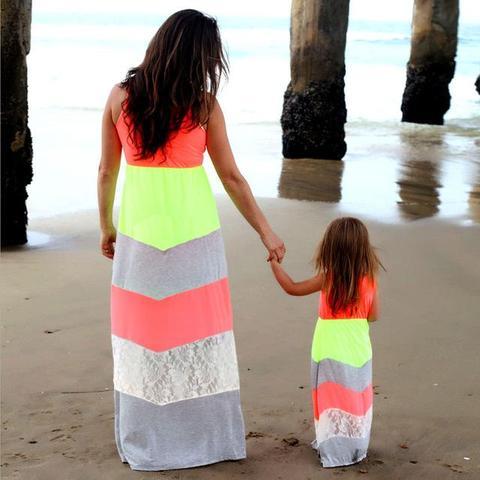
.Here are 10 ways I believe working moms can gain success at work:Find what you enjoy. Work to capitalize on those skills and tell others about your passions and aspirations. Opportunities will present themselves when others know.
Don’t let your degree hold you back. Never stop learning new skills. Request positions across the company leveraging your skills to enhance your expertise.
Communicate openly with your manager. Develop a relationship with your boss so you can comfortably discuss your career and how it impacts your family.
Identify and reflect on weekly priorities. Take time at the beginning of the week to identify top priorities and then reflect at the end of the week.
Recognize accomplished goals. And identify distractions that have kept you from goals. Don’t be afraid to ask for help, and continuously refocus your true goals.
Let yourself off the hook. Things don’t always go as planned. Instead of beating yourself up, give yourself permission to let it go and move on.
Enjoy a little spontaneity. It doesn’t have to be all about planning and structure. Be flexible enough to jump on an opportunity if it presents itself.
Stay organized at home. It’s always easier to leave for work when you’re organized at home. Institute a weekly meeting to plan meals, date nights, child care, travel and such.
Seek help from working parents. Take a minute to look around. Set up lunch with another working parent to swap ideas and advice.
Mentor and give back. Relationship building is always worth the investment of time. And when we feel more connected at work we are more successful.
Managing life-work integration as a mother is always easier when your company offers flexible work solutions and great benefits, so be selective. Research and ask questions and make sure that any company you consider working with truly has an inclusive culture.
My entire career has been at Capital One, which provides associates with award-winning benefits, training, healthcare and recognition programs. I am so very grateful for the environment where I get to work. One benefit I’m especially proud of is our recent increase in maternity leave to 18 weeks and paternity/secondary parent leave to 12 weeks, in addition to our adoption/foster care leave. For this and so many other reasons, I’m proud of Capital One’s consistent recognition on Fortune’s 100 Best Places to Work For and the Working Mother 100 Best Companies lists. I encourage all working moms to find the culture that not only accepts them as mothers but also celebrates the value all parents bring to the workplace.
Courtesy: Melissa McDevit, workingmother.comFor more of such news feeds, visit https://kiddylanes.com/blogs/newsVisit www.kiddylanes.com for kids stuff shopping
#kiddylanes#kid#kids#kidsoveralldevelopment#kid online store#online store for kids#kid apparel#responsive#parenting#parentsrole#parentlife#working women#workingmom#mom#mother
0 notes